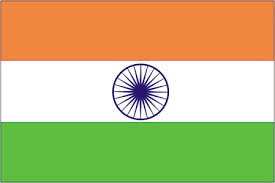Statement by Ambassador (Dr.) Pankaj Sharma, Permanent Representative of India to the Conference on Disarmament during the Plenary meeting of the Conference on Disarmament on June 4, 2019
Mr. President,
My delegation would like to thank you for organising the discussions today and take the opportunity to thank the distinguished panellists for their presentations as well as the distinguished coordinators of the Subsidiary Bodies for their remarks.
I would like to underline India’s position on the various items on today’s agenda.
India has abiding commitment to the goal of nuclear disarmament and has been actively working with the international community's endeavours towards achieving this goal.
India remains committed to universal, non-discriminatory and verifiable nucleardisarmament. We believe that this goal can be achieved through a step-by-step processunderwritten by a universal commitment and an agreed global and non-discriminatorymultilateral framework.
Just to provide a brief historical perspective:
India was the first country to call for a ban on nuclear testing in 1954 and anon-discriminatory treaty on the non-proliferation of nuclear weapons, as distinct fromnon-dissemination, in 1965.
In 1978,India proposed negotiation of an international convention that would prohibitthe use or threat of use of nuclear weapons. In 1988, India presented the Rajiv Gandhi ActionPlan to the General Assembly that provided a holistic framework for a time-boundcommitment forthe complete elimination of nuclear weapons.
It may be recalled that India had presented, in 2007, a Working Paper on NuclearDisarmament to the Conference on Disarmament (CD), as contained in CD/1816, which hadmade a number of proposals, as part of a step-by-step process, which continue to remainrelevant today.
We, therefore, reiterate our call for:
- Reaffirmation of the unequivocal commitment of all nuclear weapon States to the goalof complete elimination of nuclear weapons;
- Reduction of the salience of nuclear weapons in security doctrines;
- Negotiation of a global agreement among nuclear weapon States on 'no-first-use' ofnuclear-weapons;
- Negotiation in the CD of a universal and legally-binding agreement on non-use ofnuclear weapons against non-nuclear weapon States;
- Negotiation in the CD, with the participation of all States possessing nuclear weapons,of a Convention on complete prohibition of the use orthreat of use of nuclearweapons;
- Negotiation in the CD, with participation of all States possessing nuclearweapons, of acomprehensive Nuclear Weapons Convention prohibiting the development,production, stockpiling and use of nuclear weapons and on their destruction, leading tothe global, non-discriminatory and verifiable elimination of nuclear weapons within aspecified timeframe.
The need for Progressive steps for the de-legitimization of nuclear weapons paving the way for their complete elimination cannot be overemphasised.
India has underlined the need for review of nuclear doctrines. In order to reduce nuclear danger, through an annual UNGA Resolution for two decades, India has called for measures to reduce the risks of unintentional and accidental use of nuclear weapons including through de-alerting and de-targeting of nuclear weapons.
Since 1982,the UNGA has also voted in favour of a resolution, sponsored by India, calling on this Conference to negotiate a Convention on the Prohibition of Use of Nuclear Weapons. As a nuclear weapon state, India has a doctrine of Credible Minimum Nuclear Deterrence underlined by a No-first Use posture. We have also supported a Global No-First Use Treaty.
Without prejudice to the priority India attaches to nuclear disarmament, we support the negotiation in the CD of a non-discriminatory and internationally verifiable treaty banning the future production of fissile material for nuclear weapons and other nuclear explosive devices on the basis of CD/1299 and the mandate contained therein. As stated by a number of distinguished colleagues today, this issue deserves a stand-alone treatment in view of the high priority accorded to it by the international community plus the fact that it is one of the core issues that is most mature for negotiations.India would like to reiterate its call for an early commencement of such negotiations.
I thank you, Mr. President.












